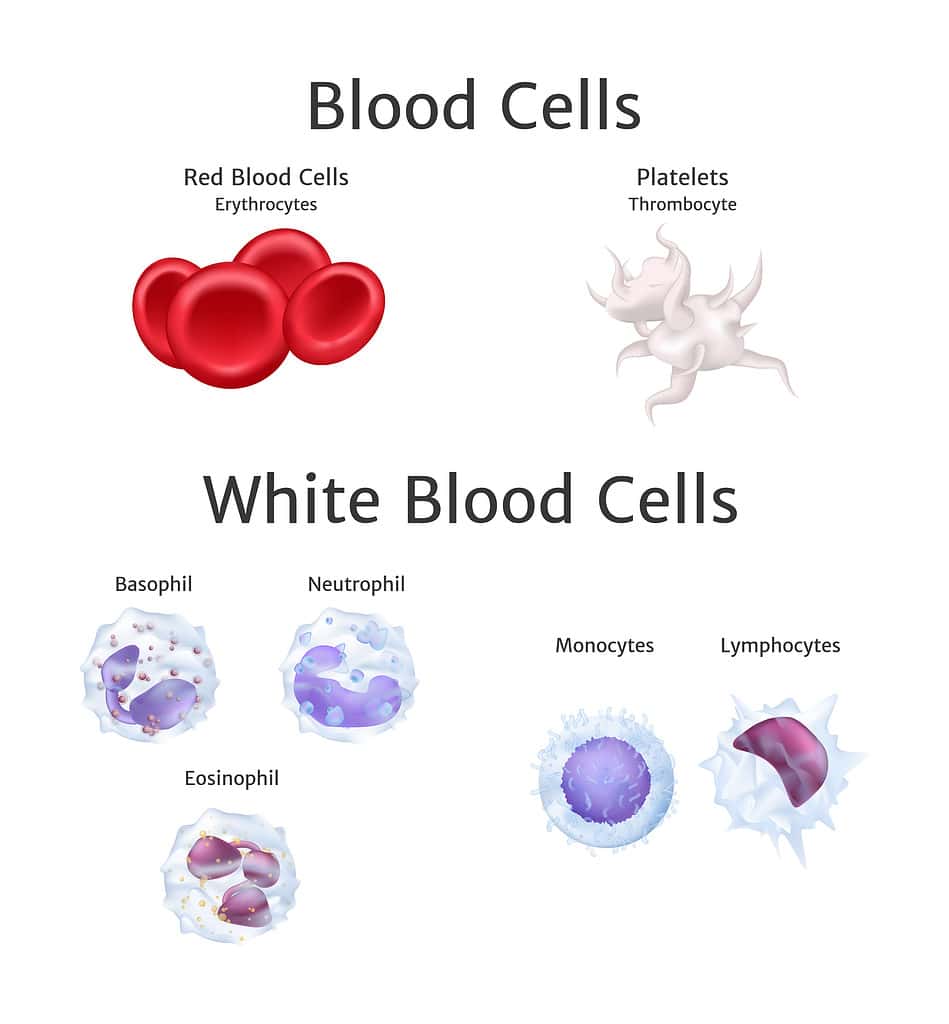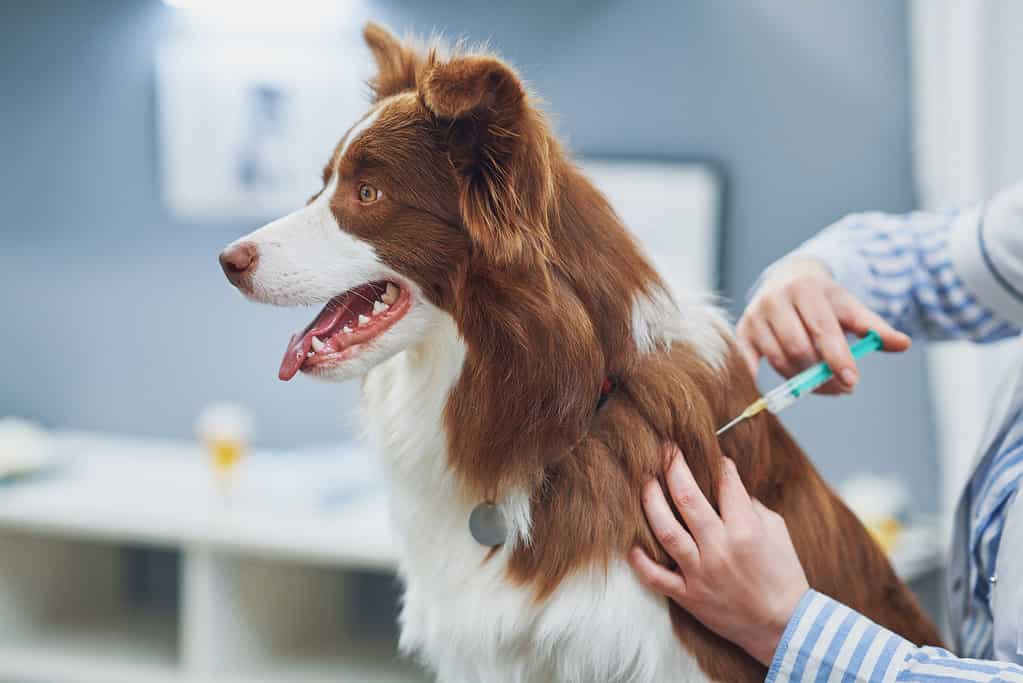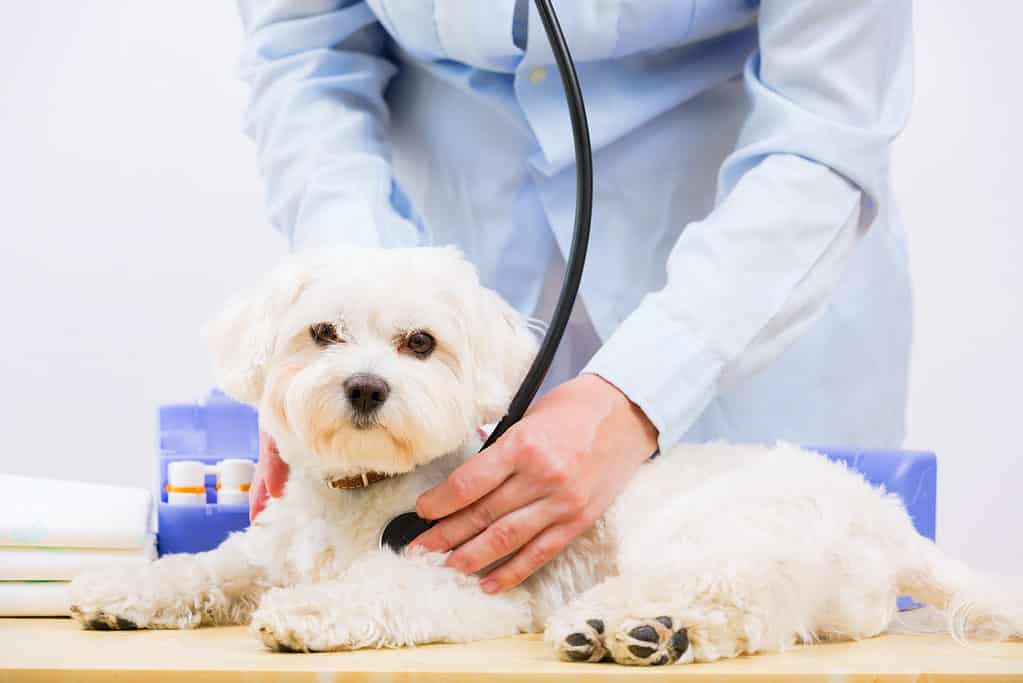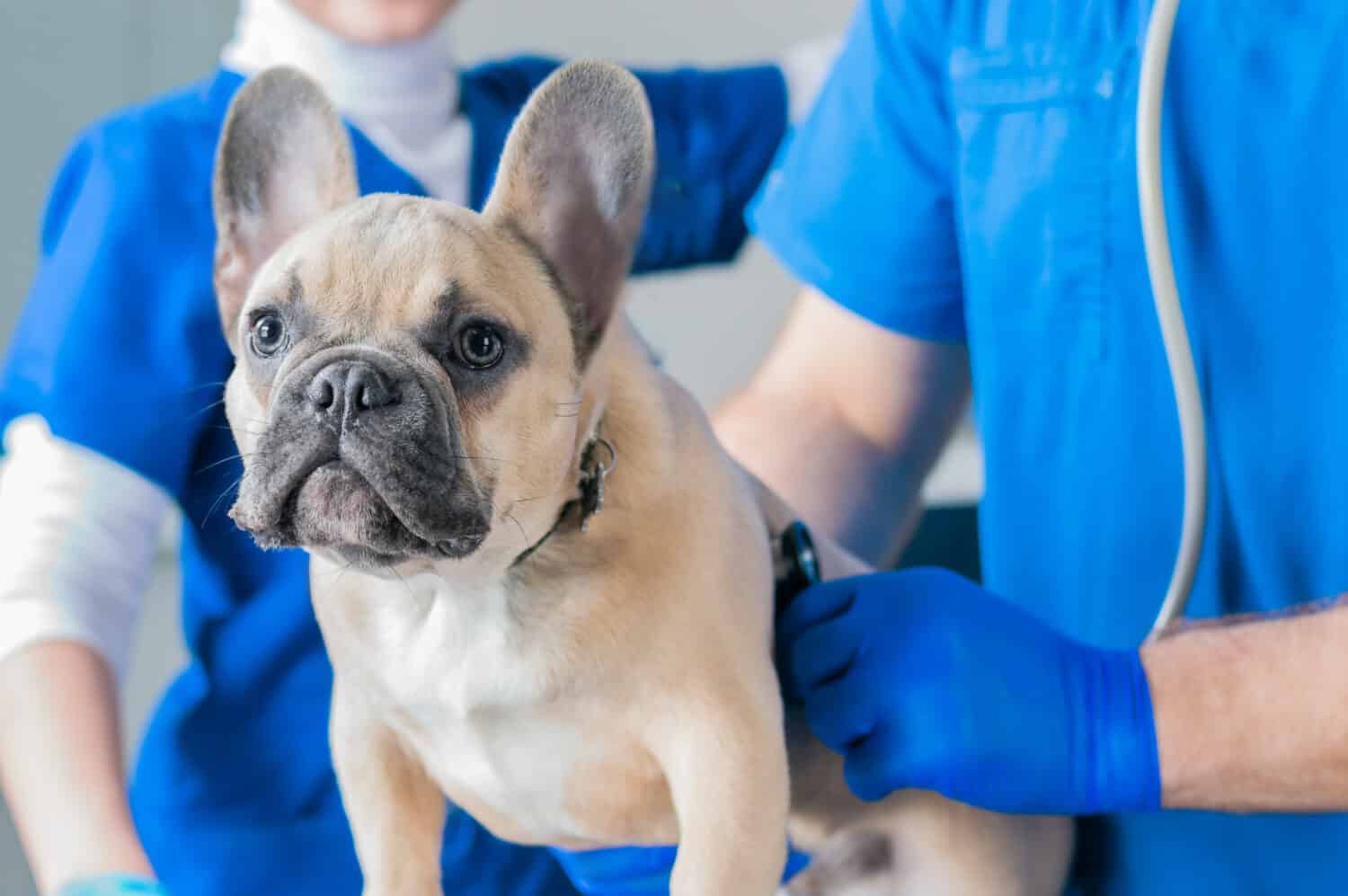Did you know that dogs have different blood types? Just like humans, each dog has its blood type that is only compatible with certain other types. Also like humans, some dogs are universal donors who can give their blood to any other canine. And before you ask, yes, doggie blood banks exist! Ideally, every dog parent should know their dog’s blood type to be prepared for any eventuality, especially if the dog in question happens to have the rarest blood type. Read on to discover the rarest blood type in dogs, what percent have it, and what other types are out there.
Blood: A Quick Overview

There are four components to blood: red blood cells, white blood cells, platelets, and the plasma that carries them.
©ikryannikovgmailcom/iStock via Getty Images
Blood carries out several vital bodily functions including transporting oxygen and nutrients throughout the body, removing waste products, and fighting disease. There are four main components of blood:
- Red blood cells (erythrocytes): Cells responsible for transporting oxygen
- White blood cells: Cells responsible for various immune functions
- Platelets: Disc-like, noncellular plates responsible for blood clotting
- Plasma: The fluid portion of blood responsible for carrying the other three components
Other relevant components of blood include:
- Antibodies: Proteins occurring in plasma that are responsible for alerting the body’s immune system to foreign substances like germs or certain antigens
- Antigens: Various protein molecules on the surface of red blood cells that determine blood type; the strongest antigen present determines the dog’s blood group
What Happens If My Dog Receives the Wrong Blood Type?

It’s important to know your dog’s blood type in case they ever need a transfusion.
©marialevkina/Shutterstock.com
Knowing your dog’s blood type is important. That said, dogs react differently to initial blood transfusions than do humans or cats. Humans and cats have natural antibodies that react very strongly to the wrong blood type. For this reason, it’s critical to transfuse them with the correct type right from the get-go. Most dogs, on the other hand, lack natural antibodies, meaning their bodies likely won’t recognize a wrong type the first time around. However, that initial transfusion allows the dog’s body to build up antibodies, which means the correct blood type is required for subsequent transfusions. The reason for this is that the antibodies will attack the foreign antigens, leading to a negative (and potentially fatal) reaction.
Negative reactions to blood transfusions in dogs rarely happen but can be serious. The worst reactions occur with the DEA 1.1 blood type. Symptoms may occur immediately, a few hours, or a few days following the transfusion. Negative reactions to the wrong blood type in dogs include the following:
- Difficulty breathing
- Drooling
- Unusually rapid or slow heartbeat
- Trembling or convulsions
- Skin hives
- Fever
- Vomiting
- Weakness
- Infection
- Accumulation of fluid in the lungs
- Decreased blood calcium levels
- Acute destruction of red blood cells
- Death
Blood Types in Dogs

There are eight nationally recognized blood types in dogs.
©Lorenzooooo/Shutterstock.com
As noted above, the various antigens on red blood cells determine blood type. Pathologists determine a dog’s blood type by noting how its blood reacts to certain antibodies. There are eight nationally recognized blood types in dogs, though 13 types or groups have been described. Each blood type can be either positive (expressing a certain antigen) or negative (lacking a certain antigen). When referring to blood type in dogs, DEA stands for dog erythrocyte antigen.
One dog may have multiple blood types at the same time. Additionally, some dog breeds tend more toward one blood type than another. Like humans with the O-negative blood type, dogs that have the DEA 4 antigen and no others are universal donors. The table below describes the eight major canine blood types:
| Number | Blood Type | Percentage of Dogs* | Compatibility |
|---|---|---|---|
| 1 | DEA 1.1 | 40-60% | Positive: Compatible with DEA 1.1 positive Negative: Compatible with DEA 1.1 positive or negative |
| 2 | DEA 1.2 | 10-20% | Compatible with DEA 1.1 negative and DEA 1.2 negative |
| 3 | DEA 3 | 5-20% | Compatible with DEA 3 |
| 4 | DEA 4 | 85-100% | DEA 4 antigen only: Universal donor |
| 5 | DEA 5 | 10-25% | Compatible with DEA 5 |
| 6 | DEA 6 | 98-99% | Mutually compatible with DEA 7 and DEA 8 |
| 7 | DEA 7 | 10-45% | Mutually compatible with DEA 6 and DEA 8 |
| 8 | DEA 8 | 40% | Mutually compatible with DEA 6 and DEA 7 |
The Rarest Blood Type in Dogs

The rarest blood type in dogs is DEA 3.
©iStock.com/macniak
The rarest blood type in dogs is DEA 3. Only 5-20% of dogs have this blood type. Close contenders are DEA 1.2 and DEA 5, which are only present in 10-20% and 10-25% of dogs respectively. Considering them as a species and not as individual breeds, DEA 1.1 positive is the most common blood type in dogs. However, DEA 1.1 negative is among the least common types.
Does Blood Type in Dogs Affect Breeding?
Breeders need to know their dogs’ blood types to avoid breeding incompatible dogs. Although it occurs rarely, it is possible to cause neonatal isoerythrolysis in puppies whose blood types are incompatible with that of their mother. This condition causes the mother’s immune system to attack the red blood cells of her puppies while in the womb, killing them.
Can My Dog Become a Blood Donor?
If you’d like your dog to become a blood donor, good for you (and your dog)! The first step is to have him or her typed, which involves your vet taking a sample of your dog’s blood and testing it. This will allow your vet to determine his or her blood type and eligibility. Depending on your location and the clinic’s resources, your vet may or may not have to send the sample away to an external laboratory.
Keep in mind that your dog may or may not be eligible to donate based on criteria like health, age, and weight. To donate, most dogs must be:
- Over 50 pounds
- Between the ages of one and seven
- Free of diseases and parasites
- Up to date on vaccinations
- Spayed (for female dogs)
- Friendly
- Free of most types of medications
How Does Blood Donation Work?

To donate blood, your dog will need to meet several eligibility criteria related to health, age, and weight.
©gorillaimages/Shutterstock.com
For dogs, the process of donating blood lasts an hour or less and is typically straightforward. Your vet will draw the blood from your dog’s jugular (a large vein in the neck) and collect it in a jar or bag. Some dogs with a nervous disposition may need a mild sedative to allay their nerves. Your vet may also choose to give your dog IV fluids during or after the procedure. Be sure to give your furry friend a treat and lots of cuddles after he or she donates to make the process more enjoyable!
There are usually two ways to donate blood. The first is by donating on call. In this case, your vet will only call on your dog to give blood in an emergency. Dogs can only donate every four to six weeks, so be sure to keep track of the last time your dog gave blood. The second way is by donating to a dog blood bank. These nonprofit banks then sell the blood to veterinarians who need it, often in larger quantities than one dog can donate at a given time.
Conclusion
In summary, it’s important to know your dog’s blood type in case they have to receive a transfusion at some point. Knowing something about the different groups, including the rarest blood type in dogs, is part of ensuring your beloved pet gets the best treatment possible.
Ready to discover the top 10 cutest dog breeds in the entire world?
How about the fastest dogs, the largest dogs and those that are -- quite frankly -- just the kindest dogs on the planet? Each day, AZ Animals sends out lists just like this to our thousands of email subscribers. And the best part? It's FREE. Join today by entering your email below.
Thank you for reading! Have some feedback for us? Contact the AZ Animals editorial team.








